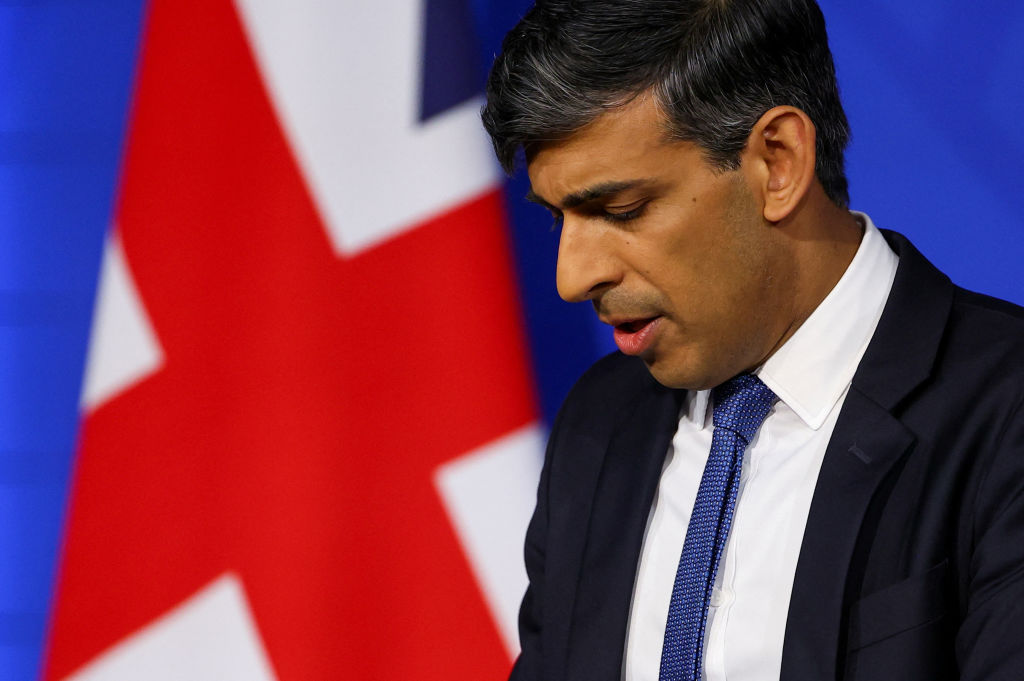In many ways a Tory-to-Labour defection was easy to predict. Though there is the traditional enmity around crossing the floor, there are plenty on the Conservative Left feeling both alienated and nervous about their seat flipping. Moving to Sir Keir Starmer’s Labour is a way to make a point and, at the same time, perhaps save their skin come election time. Indeed, with hindsight, Christian Wakeford’s move in 2022 looks like one of the shrewdest a Conservative has made this parliament.
That it is Dan Poulter who has gone from blue to red was perhaps less easy to spot. He has made clear that this is not a career-lengthening move, including in his announcement that he’s standing down at the election. Indeed, even if he has a volte-face, his seat would only expect to go Labour on the very worst-case scenarios for the Tories. This seems to be a rare thing: a move of principle.
The NHS is apparently central in Poulter’s desire to sit out the last few months of his political career in Opposition. There is more to the defection than mere opportunism. He might have started his public life bullish about spending cuts — in 2012 when the British Medical Association voted to strike, Poulter resigned from it. Yet by 2016, he was already speaking out publicly in favour of NHS funding. It’s a curious journey, but one which feels honest.
Going now perhaps speaks of a bigger shift in the Tory Party, less to do with policy and more with culture. Over the last few years, the party has shed many of the voters who resemble Poulter — middle-aged, well-off professionals. Brexit was a part of this, as was the realignment that sought to take political advantage of it. So too is the Conservatives’ embrace of more pugnacious rhetoric and policies such as the Rwanda bill. In some ways, it is as much a shift of sensibilities as ideas.
Still, with both this and the political rivalries making defection look tempting, it becomes a real question of whether Rishi Sunak’s party can hold together. Rumours abound of MPs flirting with Reform (so far just one, Lee Anderson has gone over — and that was after losing the whip) and others will be eyeing up Labour as a chance to save their skin. No longer held together by the prospect of government, parts of the party are pulling in different directions. This will only intensify when post-election recriminations begin.
Chances are perhaps higher than ever of a permanent split in the party. The centrist side feels alienated from the Right, the Right held back by the Wets. Parties are a broad coalition, but there are limits on how far that can stretch, especially when these issues extend beyond policy to a broader vision that combines both ideology and identity. The wings increasingly feel made up of very different people, chasing very different voters. Some would perhaps admit, very quietly, that they’d rather see Labour running things than the other half of the Tories.
A bad defeat will compound this. Political parties have an inertia to them. The strength of their brand and existing campaigning infrastructure makes splitting to start something new far less attractive than trying to take over what currently exists. If the Tories are close to wipeout, however, the cost of walking away from a tarnished brand with few sitting MPs is a different prospect.
Only Poulter knows the full truth of his reasons for quitting now and what he hopes to achieve. Such defections are rare and headline-grabbing, but rarely have a long-term impact. It’s unlikely any others will follow now. Indeed, spotting a traitor usually pulls the rest of the pack together a bit. His move, however, may foreshadow the Conservative coalition becoming unbearably stretched, closer to breaking point than ever.











Join the discussion
Join like minded readers that support our journalism by becoming a paid subscriber
To join the discussion in the comments, become a paid subscriber.
Join like minded readers that support our journalism, read unlimited articles and enjoy other subscriber-only benefits.
Subscribe